|
Buddhist monasticism is flexible. Although it is correct to assume that it is usually necessary for an individual to undergo a period of isolatory training (to establish and stabilise the realisation of the void) - it is also true that compassionate (Bodhisattva) activity must also be pursued throughout the myriad conditions that define worldly existence. This is true of all Buddhist traditions - as even the Bhikkhus of the Theravada School must "walk" (in a self-aware manner) through the surrounding (lay) villages - begging for food on a daily basis. Living a hermitic or cloistered existence is a means to an end and not an end in itself. Of course, this period may be repeated more than once and last any length of time. When entering different situations - the Bodhisattva does not lose sight of the realised void regardless of the external conditions experienced. The Sixth Patriarch (Hui Neng) spent around 15 years living with bandits and barbarians in the hills - retaining a vegetarian diet - even though he was not yet formally ordained in the Sangha. Within China, the Mahayana Bhikshu must take the hundreds of Vinaya Discipline Vows as well as the parallel Bodhisattva Vows (the former requires complete celibacy whilst the latter requires moral discipline but not celibacy). Anyone can be a "Bodhisattva" - whilst a formal Buddhist monastic must adhere to the discipline of the Vinaya Discipline. A lay Buddhist person also adheres to the Vinaya Discipline - but only upholds the first Five, Eight or Ten vows, etc. Vimalakirti is an example of an Enlightened Layperson whose wisdom was complete and superior to those who were still wrapped in robes and sat at the foot of a tree. In the Mahasiddhi stories preserved within the Tanrayana tradition - the realisation of the empty mind ground (or all-embracing void) renders the dichotomy between "ordained" and "laity" redundant. The Chinese-language Vinaya Discipline contains a clause which allows, under certain conditions, for an individual to self-perform an "Emergency" ordination. This is the case if the individual lives in isolation and has no access to the ordained Sangha or any other Buddhist Masters, etc. The idea is that should such expertise become available - then the ordination should be made official. However, the Vinaya Disciple in China states that a member of the ordained Sangha is defined in two-ways: 1) An individual who has taken both the Vinaya and Bodhisattva Vows - and has successfully completed all the required training therein. 2) Anyone who has realised "emptiness". Of course, in China all Buddhists - whether lay or ordained - are members of the (general) Sangha. The (general) Sangha, however, is led by the "ordained" Sangha. As lay-people (men, women, and children) can realise "emptiness" (enlightenment) - such an acommplished individual transitions (regardless of circustance) into the "ordained" Sangha. This is true even if such a person has never taken the Vinaya or Bodhisattva Vows - regardless of their lifestyle or position within society. Such an individual can be given a special permission to wear a robe in their daily lives - but these individuals do not have to agree with this. Realising "emptiness" is the key to this transformative process. Emptiness can be realised during seated meditation, during physical labour (or exercise), or during an enlightened dialogue with a Master. The first level is the "emptiness" realised when the mind is first "stilled". This "emptiness" is limited to just the interior of the head - but the ridge-pole of habitual ignorance has been permanently broken (this is the enlightenment of the Hinayana) - and is accompanied by a sense of tranquillity and bliss. This situstion (sat atop the hundred-foot pole) must be left behind. Through further training, the "bottom drops out the barrel" - and the perception of the mind expands throughout the ten directions. Emptiness embraces the mind, body, the surrounding environment - and all things within it.
0 Comments
Dear B As far as I am aware, Master Xu Yun had studied the Yijing as a child (and youth) under the strict supervision of the numerous tutors that his (Scholar-Official) father traversed through the household. This was in preparation for Xu Yun to take the 'Scholar-Official' Government Examination - which required the rote learning of the Four Books and the Five Classics - and the meticulous replication (word for word) of required sections of each text. A good Scholar-Official must demonstrate how he would deal with each real-world incident by referring to a precise and exact extract of whichever divine-text was relevant to the situation. There could be NO deviation from this ancient (and 'perfect') process if a candidate was to be successful. Remember, tens of thousands applied - and only the low-hundreds would be 'Passed' - according to governmental needs (which meant thousands who had 'Passed' would be 'Failed' as no posts existed for them to be allocated toward). On paper (and in public), Master Xu Yun always distanced himself from Confucian and Daoist Texts (the Yijing in China is considered a 'Confucian' Text). This is to be expected from a man who betrayed the will of his father and instead embraced the Path (Dharma) of the Buddha - a religion that even today is considered 'foreign' in China. To be successful on this path - Xu Yun had to completely abandon what appeared to be the worldly path as defined by Chinese convention. Therefore, the (Indian) Vinaya Discipline took the place of the Four Books and the Five Classics. If this was the cae, then why did Xu Yun (privately) advise Charles Luk to study the Yijing and integrate it with the Ch'an Path? In the UK - Richard Hunn (my primary teacher) was considered the most prominent 'Master' of the Yijing - as he could read the original (and ancient) Chinese ideograms and even lectured about this Text to ethnic Chinese students attending University in Great Britain in Putonghua! For our Ch'an (Caodong) Lineage (Master Xu Yun inherited and transmitted all Five Houses of Ch'an - but in his private transmission he only favoured the 'Caodong') - the Yijing is a pivotal and yet 'hidden' Text. Remember, the Caodong Masters were also experts in the study of the Yijing - and they used trigrams and hexagrams to devise the Five Ranks System. Xu Yun was the opinion that it is only through the study of the Yijing that the Caodong methodology can be truly understood. In this regard, John Blofeld was never privy to this advanced knowledge. If he met Xu Yun - it was merely for a few minutes where Blofeld (by his own admission) spouted nonsense. Of Course, I salute your efforts and you must never be afraid (as I know you are not) to pull the whiskers of the tiger! With Metta Adrian
Dear Gee
What is interesting is that after decades of effective inner and outer martial arts practice, I have arrived at a profound 'stable' state of mind, body and spirit (whatever that is). This journey has traversed many inner and outer levels or states of being. Mostly, this has included a logical approach to physical training motivated by 'doubt' a) in the process itself, and b) in my ability to keep-up the practice or c) to carry-out the prescribed practice correctly. This 'doubt' was inward whilst the physical 'outer' Chinese martial arts techniques were superb and highly effective. This 'doubt' (which ceased to function about 14-years-ago in c. 2007) acted like a force of magnetism drawing my 'uncertain' inner-being toward to the solid and stable outer-structure of the martial arts techniques and how they might be used in self-defence (function) and mind and body health and fitness (longevity). There is now a great awareness. A great all-embracing sense of psychological being that appears to be united with mind, body and environment. This unity I term 'spiritual' because all this seems 'transcendent'. Of course, whilst being driven on by the inner doubt to practice physical martial arts (as a form of 'armouring' against external attack), I also committed myself to intense Ch'an meditative practice as a means to 'uproot' this doubt which all motivating throughout my entire life to 'take action' in many different arenas - it also contained an element of 'weakness'. As I interpreted this 'weaknesses' as a major problem that a) held me back in a state of fearful 'non-action', or b) sabotaged physical actions so as to render all exertion completely pointless! The mind 'cleared' and 'expanded' - it became all-embracing so that the body stopped appearing to be 'outside' of it and took its place entirely within psychological awareness. Although I had my initial experiences of the realisation of a 'still' and 'empty' mind with its awareness expanding and embracing all things around 1990 - it took another 15-years for this experience to settle-down (2005), and about another two or three years for all vestiges of 'doubt' to completely dissolve (2007/8). What did happen around 1990, however, is that my physical use of outer Chinese martial arts technique deepened, expanded and matured, and since the time of 'teaching' in my own right (as opposed to 'training' under a teacher) - I have never lost a fight in the training hall. (Around a year before this experience, I was following a strict Chinese (Mahayana) Buddhist 'monastic' regime and sitting in meditation for hours a day practicing the hua tou 'Who is hearing?' Suddenly, whilst sitting in my 'cell' and without warning, my mind 'ceased to move' becomingly utterly and completely 'still'. This was accompanied by deep sense of permanent ecstasy! My Chinese teachers correctly taught me with 'silence' - whilst my Western teacher Richard Hunn (1949-2006) - my Western Ch'an teacher - correctly taught me with words! Ironically, he drew my attention to the authentic Chinese Ch'an texts. 'Neither be attached to the (realised) inner void - nor hindered by (the 'external') hindering phenomena'. It was deep within the 'silence' of my Chinese Ch'an Masters (including Chan Tin Sang [1924-1993] that I discovered the poignant meaning of Richard Hunn's spiritually 'vibrant' words. This is how I knew that Richard Hunn was correct in his understanding. Later, this dual instruction [into non-duality] led to the next shift in perspective This occurred a year later after a further period of intense practice, and was a product of a complete change or 'turning about' [see the 'Lankavatara Sutra'] at the deepest essence of the mind. It was such a profound and important 'first principle' that I nearly omitted it from the list of all the important events! I was once meditating sat on the ground outside 'returning' all sensory data 'back to its 'empty ground' essence - when a cool and refreshing Summer's freeze blew gently across my face. Suddenly, my mind instantaneously 'turned the right way around' immediately abandoning its previous 'inverted' functionality and appeared to 'expand', assume an 'all-embracing' position of being, whilst this 'new awareness' thoroughly permeated the physical-body and penetrated the physical universe throughout the past, present, and future! This permanent shift in psychological and physical manifestation changed 'me' from the DNA-chemical foundation upward and influenced all the views and opinions I now hold!) This includes not only transforming the experience of sparring with students (which is now unified experience premised upon wisdom, loving kindness and compassion) - but also manifested within the otherwise 'brutal' realm of 'honour fights' whereby unknown and unfamiliar individuals suddenly turn-up at my training hall and (disrespectfully) ask to spar! They wish to gain fame and fortune through 'out of control' violence which involves (for them) the 'beating' and 'exposing' a local (Chinese) gongfu teacher! How did this happen? I think whereas my opponents were still motivated by a deep and profound sense of 'doubt' (often involving a profound 'self-hatred') - I no longer experienced this 'doubt' which 'divides' human-beings during combat. Doubt by this time in my life had become nothing more than a profound sense of enhanced 'awareness' full of compassion and understanding. This is all held in place by a physical (martial) ability that can use 'gentleness' just as easily as 'harshness' to 'control' or 'regulate' physical interactions. Signed: Adrian Chan-Wyles [陳恒豫 - Chan Heng Yu] (22.11.2021) - '釋大道' (Shi Da Dao) Witnessed and Authenticated by Yau, Gee-Cheuk [邱芷芍] (22.11.2021) - 'Gee Wyles' - Wife of Adrian Chan-Wyles |
Archives
March 2024
Categories
All
|
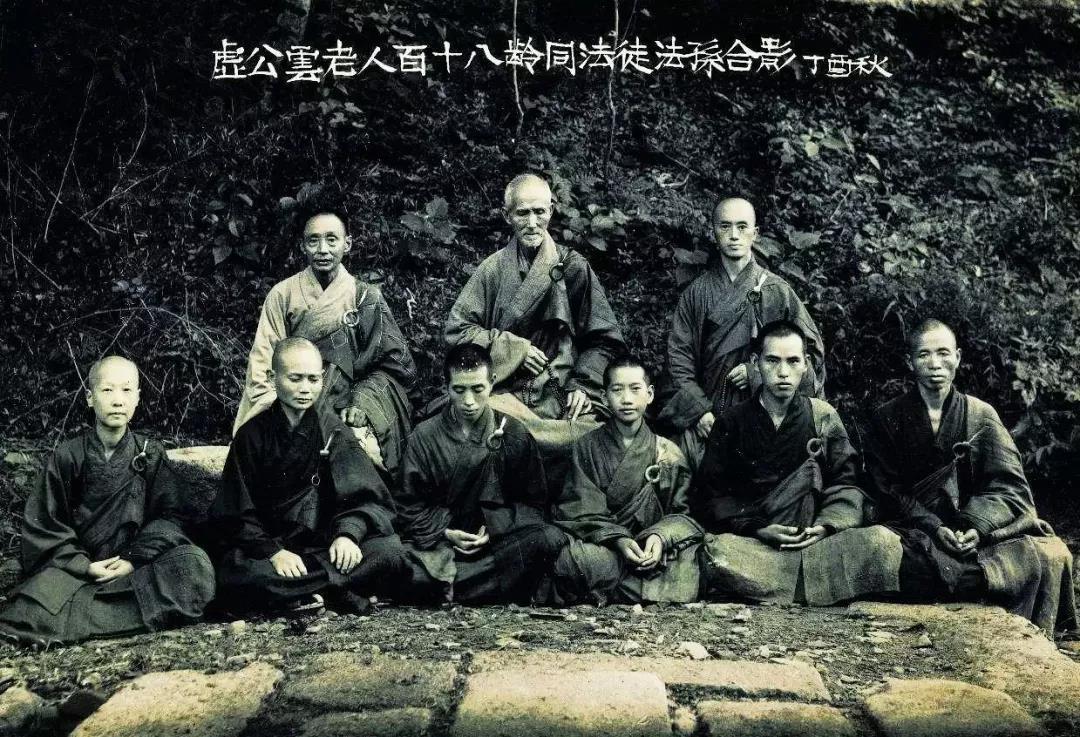
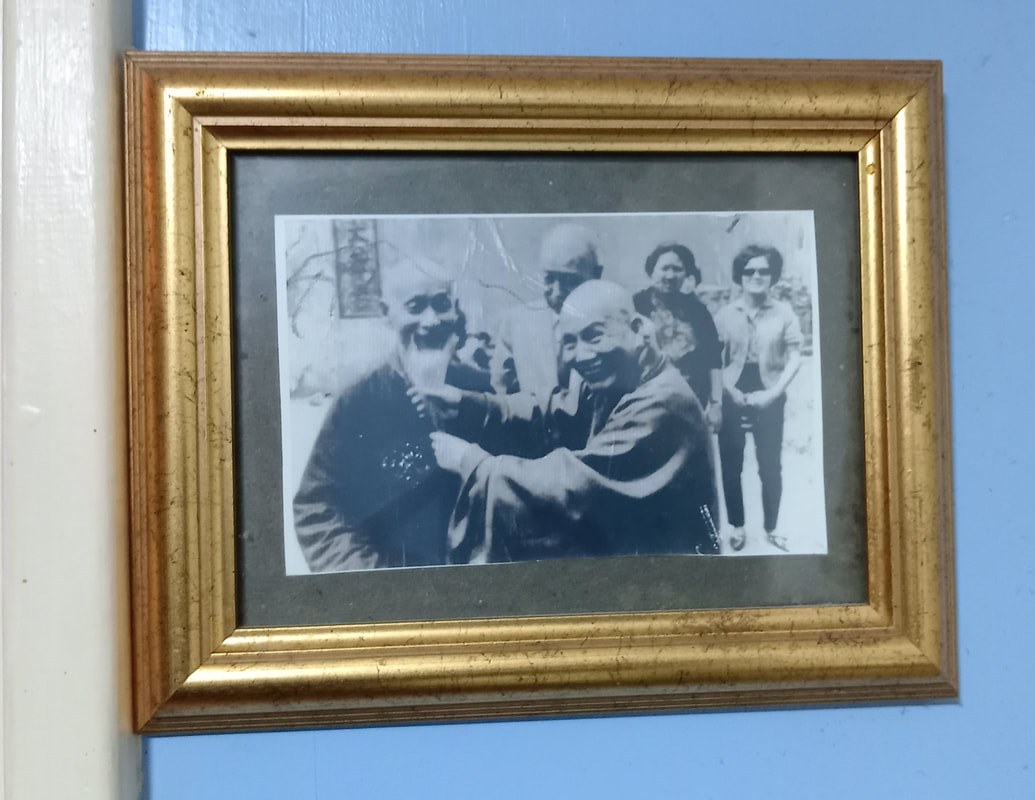
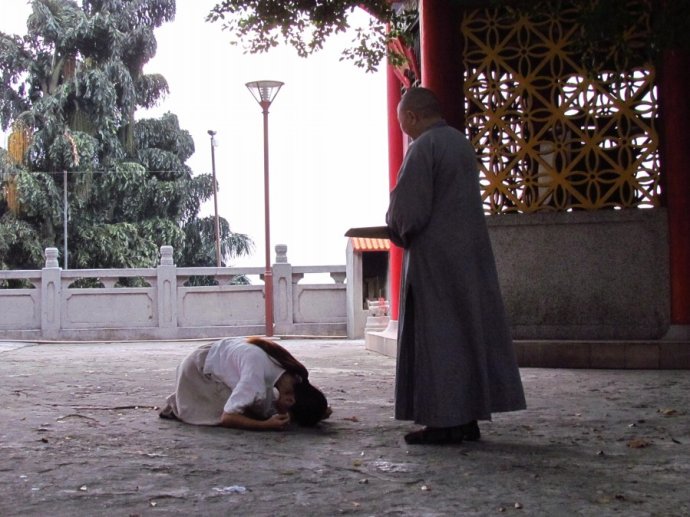
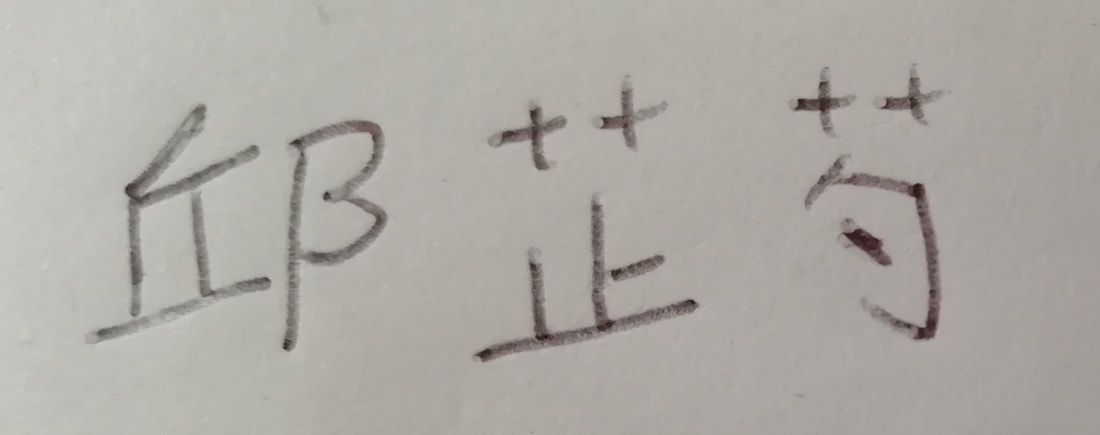
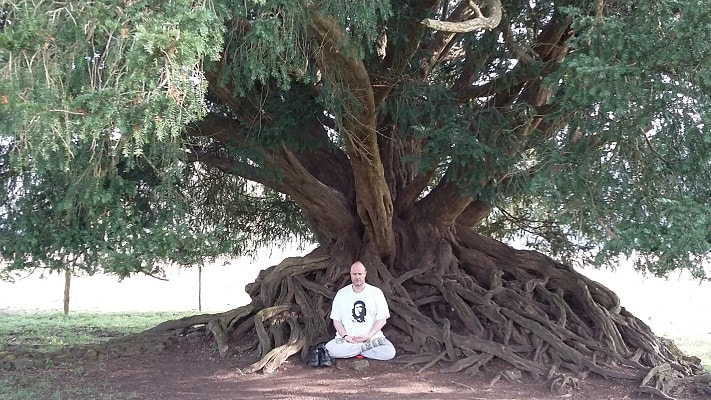
 RSS Feed
RSS Feed